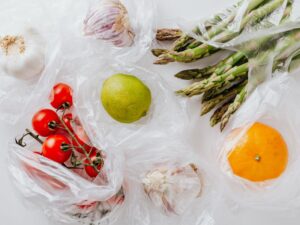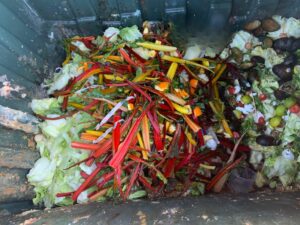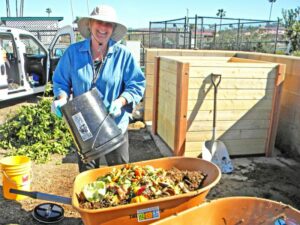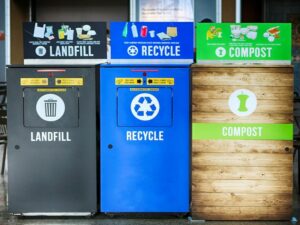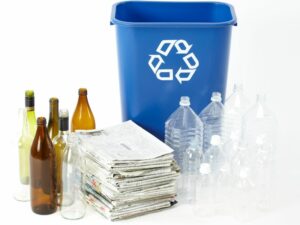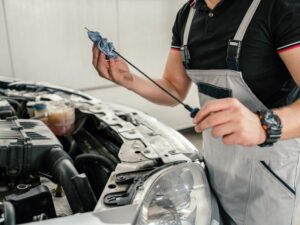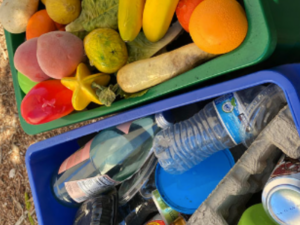Posts Tagged ‘recycling’
Plastic Recycling Program – Thanks to Plastic Beach!
Tell a friend; we’ve got a plastic bag and wrap recycling program at Solana Center! Thanks to our partner Plastic Beach for making recycling easier for plastic materials that can’t go in the standard blue bin. They work to ensure all of the plastic bags and film are staying in the U.S. and being recycled nearby,…
Read MoreHow to Prevent Microfiber Pollution in Your Household
Have you heard of the term ‘microfibers’? These are tiny synthetic pieces of plastic yarn often shed by our clothing when in the washing machine. While they sound small, these microfibers have a big impact on our water ways and oceans, unfotunately often making their way to be ingested by marine life. Near the North Pacific Gyre of the…
Read MoreSB 1383 Update: Organics Recycling Compliance Enforcement Changes in 2024
Senate Bill 1383, or the Short-Lived Climate Pollutant Reduction law, requires that businesses implement programs to ensure organic materials are no longer put in the trash, with edible food being donated and the rest sorted for organic waste recycling. Before the start of 2024, jurisdictions were required to visit Tier One and Tier Two (see…
Read MoreCase Study: Food Cycle Community Compost Program
At the end of 2023, Solana Center made the difficult decision to end the Food Cycle Community Compost program. With the rollout of curbside green recycling bins, we had seen a steady participation decline, and continuing the program was no longer sustainable for our organization. We are so grateful for all of the residents and…
Read MoreThe Benefits of Diverting Organic Waste from Landfills
Written by volunteer: Kate Sheppard Diverting waste from landfill can sometimes feel like a chore, but the benefits far outweigh the temporary annoyance of getting your hands dirty. This is especially true of organic waste. Yes, it may occasionally be sticky or smelly, but it’s not hard to properly sort and divert these compostable materials…
Read MoreRecycling – Why is it important?
Recycling conserves natural resources and lets us skip the harmful extraction and refining process that goes into making products from virgin materials. Making stuff from the materials of other stuff uses less energy and water and stops that stuff from filling our landfills. Recycling one… Plus, recycling accounts for 3.1 million jobs in the U.S.…
Read MoreEPS Food Container Alternative List
EPS is “expanded polystyrene,” commonly known by the brand name Styrofoam™. There are environmental concerns with EPS, including difficulty in recycling, source of man-made marine debris, and greenhouse gas emissions from the embedded energy of the manufacturing process. Additionally, EPS food containers are not fully recyclable in a single-stream process because they break up in…
Read MoreRecycling Used Motor Oil
Did you know that used motor oil never wears out? It just gets dirty and can be recycled, cleaned, and used again. Recycling used motor oil conserves a natural resource and is good for the environment too! Motor oil poured onto the ground or into storm drains, or tossed into trash cans can contaminate and…
Read MoreSecondhand compost bins take recycling to the next level
At Solana Center, we live the values of reduce, reuse, and recycle in all forms. This spurred the idea to offer our pre-loved bins to the community at reduced prices at our store. This is a solution to both provide residents with an opportunity to give their compost bins another life if they aren’t being…
Read MoreFrom the Rotline: Are all Biodegradable Plastics Compostable?
Rotline Question: What is the difference between biodegradable plastics and compostable plastics? Answer: Plastic that is compostable is biodegradable, but not every plastic that is biodegradable is compostable. Biodegradable plastic may be engineered to biodegrade in soil or water, whereas compostable plastic refers to biodegradation into soil conditioning material (i.e., compost) under a certain set…
Read More
